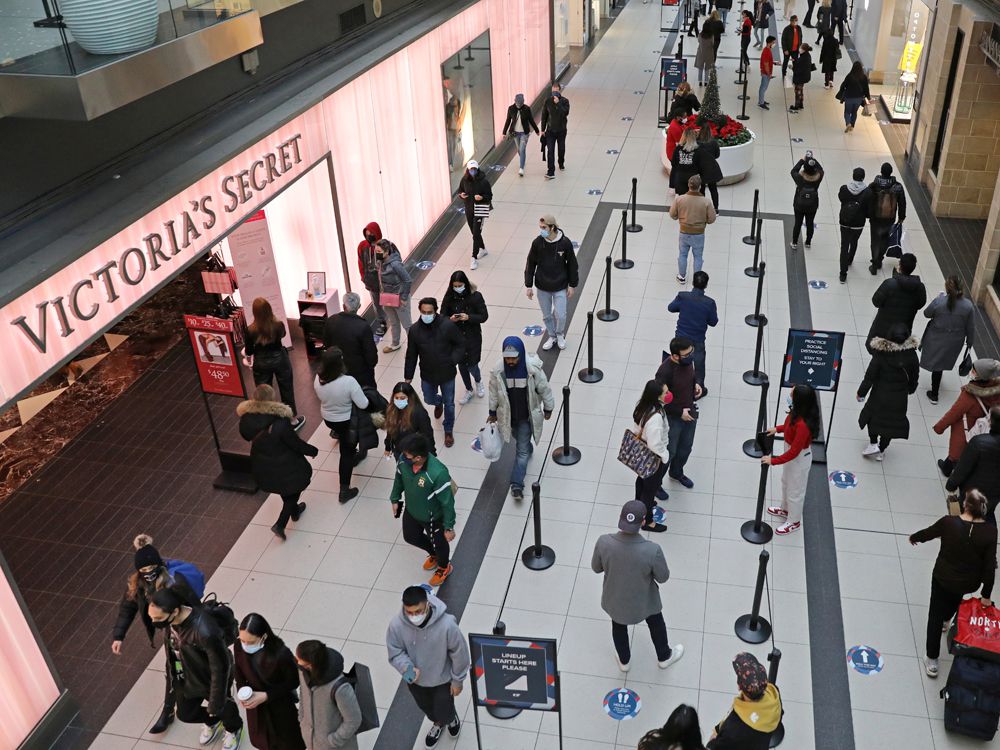Article content continued
In what has been a persistent bright spot for retail throughout the pandemic, e-commerce sales continued to soar, up by more than 75 per cent compared to last November. But they have not been enough to overcome regional restrictions that forced stores to close in most of Canada’s largest markets.
“You just can’t make that up,” LeBlanc said.
Retail sales are expected to have only gotten worse since, as stay-at-home orders started to come into effect in late November and persisted into December, tamping down the usual Christmas shopping rush and the critical Boxing Day sales push. StatsCan’s preliminary estimate was that December sales fell by 2.6 per cent.
“And with lockdowns intensifying in parts of the country, we expect sales will dip again in January,” RBC economists Nathan Janzen and Claire Fan wrote in a research note on Friday. They said RBC’s credit and debit card spending data point to “sales falling about five per cent in December.” But they also stressed that the drop was much less acute “than in the spring when retail sales plunged over 30 per cent over March and April.”
We expect sales will dip again in January
RBC economists Nathan Janzen and Claire Fan
TD economist Ksenia Bushmeneva gave some reason for the sector to hope, noting that winter lockdowns will lead to less spending and higher savings, creating pent-up demand that will be unleashed on the market in the second half of 2021.
“Spending is expected to rebound as restrictions are lifted and vaccines become widely available,” Bushmeneva wrote in a research note Friday.
LeBlanc at the Retail Council said that would be especially good news for struggling clothing stores.
“There’s a school of thought that people are going to be so fed up of wearing what we wear today, that you’re going to see a big acceleration in the opposite direction,” he said. “You know, people are going to want to dress up. I mean, I will.”
Financial Post
Source link





